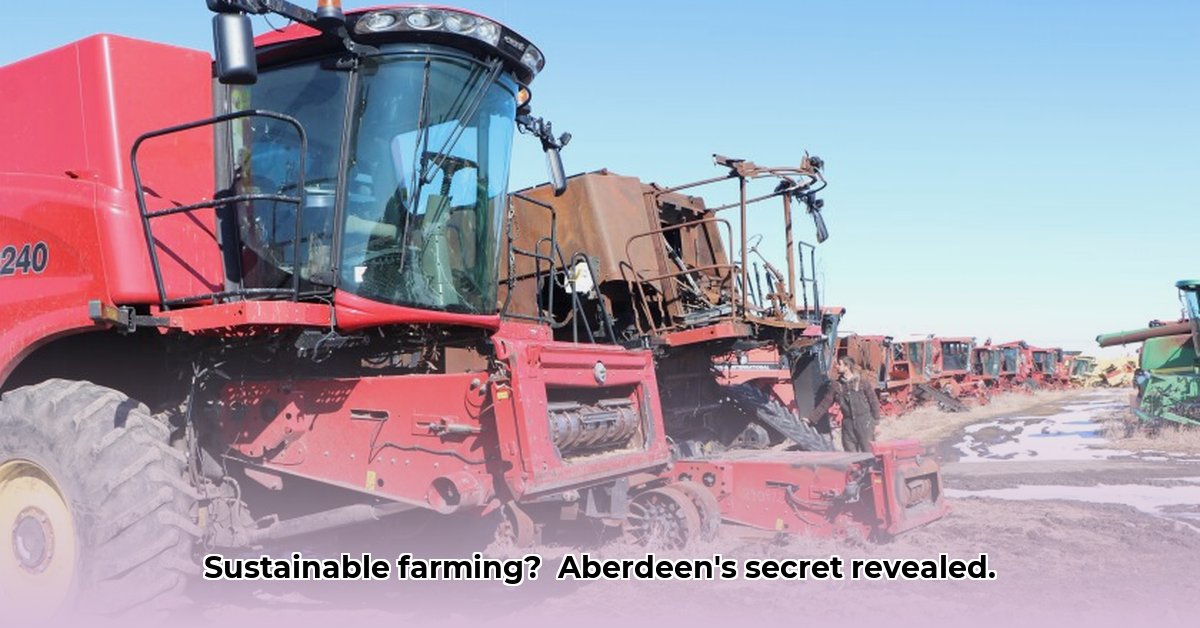
Tractor Supply Aberdeen SD: A Potential Hub for Sustainable Agriculture
Tractor Supply Company (TSC) in Aberdeen, South Dakota, presents a compelling case study in the intersection of retail and sustainable agriculture. For more TSC locations, see this helpful resource. While primarily known for its agricultural equipment and supplies, a closer examination reveals a potential, albeit indirect, role in supporting environmentally conscious farming practices within the region. This article explores TSC's product offerings, analyzes its potential influence on sustainable agriculture, highlights the need for further research, and proposes actionable steps to bolster its positive impact.
Tractor Supply's Product Offerings: More Than Just Tractors
TSC's Aberdeen store offers far more than just heavy machinery. A significant portion of their inventory directly relates to sustainable farming practices. This includes organic seeds (seeds that are grown without the use of synthetic pesticides or fertilizers), reducing the need for chemical inputs and potentially improving soil health. Water-efficient irrigation systems, such as drip irrigation (a water-saving irrigation method delivering water directly to plant roots), are also available, addressing water scarcity concerns in the region. Furthermore, the store stocks composting bins and tools (containers and implements designed to facilitate composting), promoting soil enrichment and reducing reliance on synthetic fertilizers. While the presence of these items suggests a potential for positive environmental impact, the actual effect remains to be quantified. Do farmers consistently utilize these products for sustainable purposes? This is a critical question demanding further investigation.
The Indirect Influence: Empowering Sustainable Choices
TSC’s role in sustainable agriculture is largely indirect. By offering a readily accessible range of sustainable farming supplies, it empowers local farmers to adopt greener practices. The ease of acquiring organic seeds or water-saving irrigation systems could significantly influence farming practices, potentially leading to reduced water consumption, minimized chemical fertilizer use, and improved soil health. However, without concrete data on purchasing patterns and the subsequent impact on farming practices, this remains a powerful hypothesis rather than a demonstrably proven impact.
Bridging the Data Gap: A Critical Need for Research
The lack of readily available data presents a significant obstacle to fully understanding TSC's impact. Quantifying the actual effect requires comprehensive research. This should include surveys and case studies of TSC customers to ascertain how frequently they utilize sustainable farming products and the measurable outcomes (reduced water usage, improved soil health, decreased reliance on chemical fertilizers). Sales data analysis, categorized by product type and sustainability relevance, could also provide invaluable insights. Without this rigorous data analysis, any claims about TSC's contribution to sustainable agriculture remain speculative.
Actionable Steps: A Collaborative Approach to Sustainability
To unlock the full potential of TSC's contribution to sustainable agriculture, a multi-pronged approach is essential:
TSC Management: Conduct a thorough sustainability audit of the supply chain, identify opportunities for improvement in sourcing and product offerings, and publish regular environmental impact reports to enhance transparency and build consumer trust.
South Dakota Farmers: Actively explore TSC's sustainable product offerings, seek advice from store staff on optimal usage for best results, and share best practices within the farming community to foster widespread adoption of environmentally friendly techniques.
Consumers: Support businesses committed to sustainable practices, communicate to TSC the importance of their role in promoting sustainability through purchasing choices and feedback, and advocate for policies that support the adoption of sustainable agricultural practices.
Government Agencies: Provide financial incentives and educational programs that encourage sustainable farming practices, invest in research to quantify the impact of sustainable methods, and create policies that improve the accessibility to sustainable tools and methods for farmers.
Conclusion: Unlocking TSC's Potential for a Sustainable Future
Tractor Supply Company's Aberdeen store possesses the potential to significantly contribute to sustainable agriculture in South Dakota. However, this potential remains largely untapped due to a lack of comprehensive data. Through collaborative efforts involving TSC, farmers, researchers, and government agencies, we can uncover the true extent of TSC’s influence and transform its considerable potential into demonstrable, positive environmental impact. By embracing data-driven decision-making and promoting open communication, we can work together to create a more sustainable agricultural future.